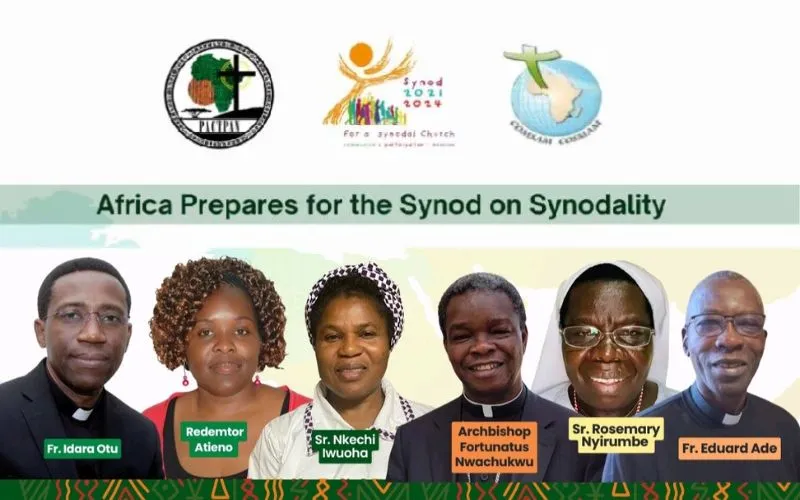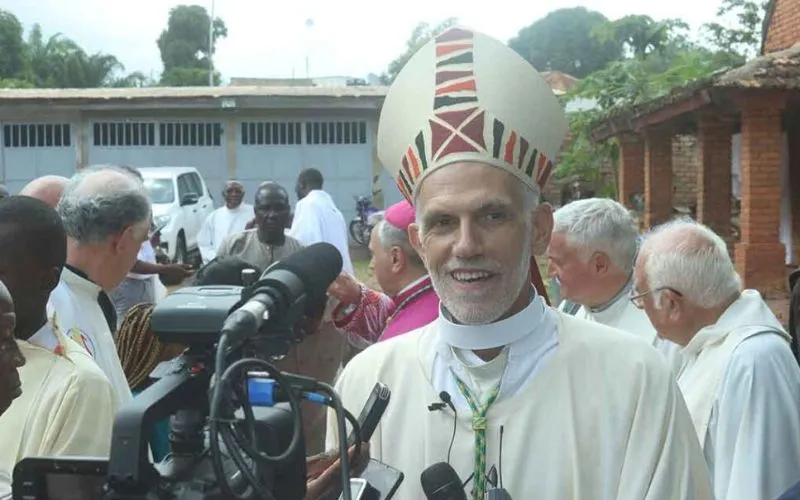“Who is the Church in Africa, why is the Church in Africa, and where is the Church in Africa?” he posed, and continued, “Answering these questions will serve as a deeper theological foundation to strengthen the relationship between the Roman Curia and local Churches. It also means that particular Churches must strive for credible governance, self-sustainability, and effective mission practice.”
“The Roman Curia on the hand must promote Synodality subsidiarity, and co responsibility in relating with local Churches,” the Nigerian MSP member said.
Describing the Roman Curia as primarily an instrument at the service of the Holy Father, Fr. Otu said that the mission of Apostolic Nuncios should therefore be to assist Local Ordinaries and Catholic Bishops’ Conferences.
According to Fr. Otu, challenges such as ethnicity, tribalism, clericalism, ineffective governance structures in Africa are straining the relationship between local churches and the Roman Curia. Other challenges in Africa are lack of competent personnel and dependency on the West.
From the Roman Curia, on the other hand, is “ineffective communication, bureaucracy, and lack of transparency,” Fr. Otu lamented, adding that the situation “creates a sense of paternalism, authoritarianism, and excessive control from the Roman Curia.”
(Story continues below)
“We need to re-imagine the role of Apostolic Nuncios in terms of them being pastors. Fundamentally, they are pastors, and they play an important role in helping local Churches in evangelization,” he said, adding that the Roman Curia, on the other hand, must see itself as the bridge builders between the Holy Father and Local Churches.
Additionally, the Church in Africa needs to do more in forming personnel capable of engaging the Roman Curia in working with the Church in a way that promotes the good of the Church in Africa, the Nigerian theologian said.
At the August 16 palaver, Wilfrid Fox Cardinal Napier cautioned participants against having “unrealistic” expectations from Nuncios, adding that the Holy Father’s representatives have their work cut out for them.
“I am wondering if our expectations of Nuncios are not unrealistic,” Cardinal Napier said, and added, “Their main task is to ensure that messages, teachings, policies that are generated at the Vatican get through to the local Church. They are also there to make sure that what the local Church is experiencing is transferred back to the Vatican so that adjustments can be made from time to time in regard to the issues that are being considered.”
The South African Cardinal added, “We just got a new Nuncio and he made it quite clear that he is here as the ears, the mouth, and the heart of the Holy Father.”
The Cardinal, who started his Episcopal Ministry in February 1981 as Bishop of South Africa’s Diocese of Kokstad said in choosing a Bishop, the Apostolic Nuncio is responsible also for passing on the names that have been recommended by the local conference and other individuals.
Agnes Aineah is a Kenyan journalist with a background in digital and newspaper reporting. She holds a Master of Arts in Digital Journalism from the Aga Khan University, Graduate School of Media and Communications and a Bachelor's Degree in Linguistics, Media and Communications from Kenya's Moi University. Agnes currently serves as a journalist for ACI Africa.








